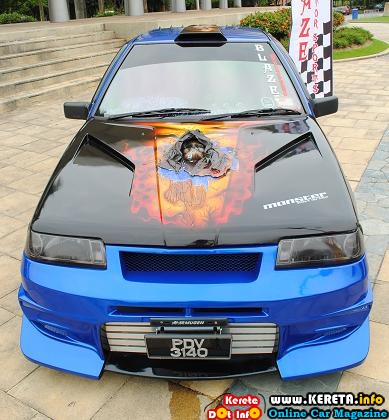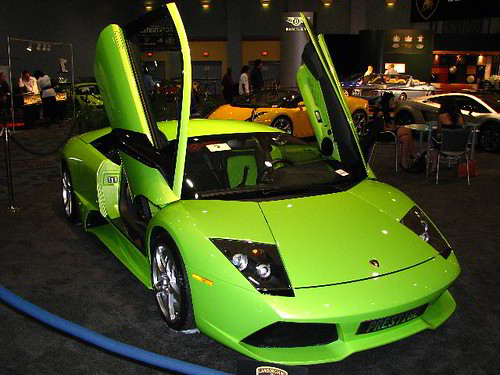|
|
|---|
Saturday, October 31, 2009
EVs mass market: Nissan Aims to Cut Electric-Car Cost TNR.v, CZX.v, SQM, FMC, ROC, WLC.v, CLQ.v, RM.v, LI.v, AVL.to, RES.v, QUC.v, NSANY, RNO, F, DAI,
Posted by andre at 2:25 PM"International Lithium Corp. put a new presentation on its website with timescales for different type of Lithium and REE deposits. If we are going to enjoy advance in Lithium-ion battery's technology in our electric cars in five years time on a truly mass market scale with penetration more then 5% Lithium supply must be doubled. Time is today to develop the new secured resources for strategic commodities of the nearest future"

Nissan-Renault CEO Carlos Ghosn is on a road show, after USA promotion tour he is in Beijing and the chart above tells you why. Electric cars are serious this time and people involved means business investing billions in new disruptive technology - with further technological development cost will go down and electric cars will be within reach most of the consumers even without government subsidies. Now we can say that we have a very serious effort on the part of Nissan-Renault group to make electric cars happen for real this time after so many false starts. Our Lithium Demand model needs to be adjusted with Nissan-Renault production figures from 250000 to 500000 and his estimation of 10% share by electric cars in global auto sales by 2020 could translate into 2.4 times increase in global demand for lithium.
"WSJ Nissan Aims to Cut Electric-Car Cost
Economies of Scale Should Lower Expense of Batteries, CEO Ghosn Says
By NORIHIKO SHIROUZU
BEIJING—Nissan Motor Co. Chief Executive Carlos Ghosn said the Japanese auto maker intends to overcome the high cost of making advanced batteries and make its all-electric cars price-competitive even without government subsidies.
Mr. Ghosn, speaking to a small group of reporters in the Chinese capital, gave a timeframe of around three years for the cost-cutting effort, though he said the price of oil would play a large role in determining the effort's success.
CEO Carlos Ghosn, shown in August, says Nissan will sell its all-electric Leaf first to fleet customers.
"How long do we need government incentives going to the consumer?" Mr. Ghosn said. "We think [such incentives] are necessary for a period of time we estimate to be three years."
The executive said Nissan believes demand for all-electric battery cars is likely to keep increasing, and that the resulting economies of scale in producing batteries will allow Nissan and other companies to significantly slash costs involved in making electric cars. "Scale is absolutely important," he said.
Technological improvements are also expected to help cut the cost of producing lithium-ion batteries, high-power motors and other new technologies needed to build electric cars.
Nissan plans to make a big global push for its line of battery cars, starting in the second half of next year with the Leaf, a hatchback it plans to make available to corporate-fleet customers in the U.S., Europe and Japan. It is staking its future on all-electric battery cars even as its rivals express skepticism over that technology, at least over the short to medium term. Some of them have chosen to invest instead in plug-in electric hybrid cars.
In China, Nissan said it plans to test-market the Leaf in 2011 by making it available to government agencies and other fleet customers in the city of Wuhan.
Initially, Nissan plans to make the Leaf price-competitive with comparable gas-fueled compact cars around the world by relying on government incentives for private purchases and separating the car's battery from its purchase price. Nissan executives have said the company plans to lease the battery to Leaf buyers and charge them a monthly payment that is comparable to the monthly expenditure for gasoline to operate a gas-fueled compact car.
One factor manufacturers of all-electric cars can't control, and which is likely to have a profound impact on demand for electric vehicles, is the price of gasoline, Mr. Ghosn said. However, he said he believes gasoline prices will remain high in coming years and keep pushing up demand for cars powered by alternative fuel sources.
"The higher the price of oil, the faster" it will be to overcome the high cost of building electric cars because that would spur demand, Mr. Ghosn said. "I am confident that the model is going to work," he said, referring to the business model for the Leaf and other electric cars Nissan plans to launch in coming years. Mr. Ghosn expects electric vehicles to account for 10% of overall global vehicles sales by 2020.
As a sign of Nissan's confidence that demand for all-electric cars is going to take off, Mr. Ghosn said Nissan is planning to put in global capacity to produce 500,000 battery packs a year in the medium term. Many of those batteries are going to be used to produce electric cars by Nissan and its alliance partner Renault SA."
BEIJING—Nissan Motor Co. Chief Executive Carlos Ghosn said the Japanese auto maker intends to overcome the high cost of making advanced batteries and make its all-electric cars price-competitive even without government subsidies.
Mr. Ghosn, speaking to a small group of reporters in the Chinese capital, gave a timeframe of around three years for the cost-cutting effort, though he said the price of oil would play a large role in determining the effort's success.
CEO Carlos Ghosn, shown in August, says Nissan will sell its all-electric Leaf first to fleet customers.
"How long do we need government incentives going to the consumer?" Mr. Ghosn said. "We think [such incentives] are necessary for a period of time we estimate to be three years."
The executive said Nissan believes demand for all-electric battery cars is likely to keep increasing, and that the resulting economies of scale in producing batteries will allow Nissan and other companies to significantly slash costs involved in making electric cars. "Scale is absolutely important," he said.
Technological improvements are also expected to help cut the cost of producing lithium-ion batteries, high-power motors and other new technologies needed to build electric cars.
Nissan plans to make a big global push for its line of battery cars, starting in the second half of next year with the Leaf, a hatchback it plans to make available to corporate-fleet customers in the U.S., Europe and Japan. It is staking its future on all-electric battery cars even as its rivals express skepticism over that technology, at least over the short to medium term. Some of them have chosen to invest instead in plug-in electric hybrid cars.
In China, Nissan said it plans to test-market the Leaf in 2011 by making it available to government agencies and other fleet customers in the city of Wuhan.
Initially, Nissan plans to make the Leaf price-competitive with comparable gas-fueled compact cars around the world by relying on government incentives for private purchases and separating the car's battery from its purchase price. Nissan executives have said the company plans to lease the battery to Leaf buyers and charge them a monthly payment that is comparable to the monthly expenditure for gasoline to operate a gas-fueled compact car.
One factor manufacturers of all-electric cars can't control, and which is likely to have a profound impact on demand for electric vehicles, is the price of gasoline, Mr. Ghosn said. However, he said he believes gasoline prices will remain high in coming years and keep pushing up demand for cars powered by alternative fuel sources.
"The higher the price of oil, the faster" it will be to overcome the high cost of building electric cars because that would spur demand, Mr. Ghosn said. "I am confident that the model is going to work," he said, referring to the business model for the Leaf and other electric cars Nissan plans to launch in coming years. Mr. Ghosn expects electric vehicles to account for 10% of overall global vehicles sales by 2020.
As a sign of Nissan's confidence that demand for all-electric cars is going to take off, Mr. Ghosn said Nissan is planning to put in global capacity to produce 500,000 battery packs a year in the medium term. Many of those batteries are going to be used to produce electric cars by Nissan and its alliance partner Renault SA."
Subscribe to:
Post Comments (Atom)
















0 comments:
Post a Comment